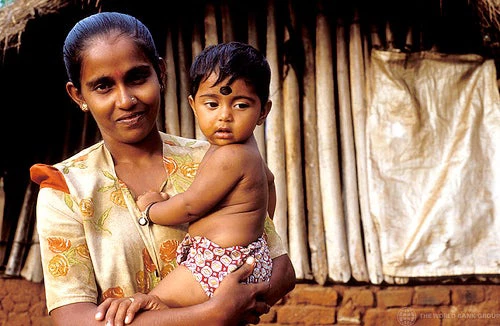
I recall my first exposure to this literature in 2005 when I was working on the Equity WDR. I was struck by the power of these simple interventions in the early days of children’s lives. I learned about the small scale programs in the US – Perry Preschool Project and Abecedarian Carolina Program – and marveled at the improved long-run results for participants and for their communities. Longitudinal studies showed improved cognitive ability, higher incomes, lower propensity to be on welfare and lower rates of arrest and incarceration, leading Nobel Laureate Heckman to conclude that among the range of schooling interventions, those in early childhood had the highest pay-off by a wide margin.
And I learned that such high payoffs are observed not just in developed countries but also in the handful of developing countries that were implementing these programs. I found an absolute gem in the Jamaican program, studied by Grantham-Mc Gregor et al. In this program, stunted infants from disadvantaged backgrounds received nutritional supplements and stimulation that allowed them to catch up with their better off peers in terms of cognitive and behavioral development. A recent follow-up study twenty year on by Gertler et al shows remarkable long-term impacts on labor market outcomes with participants earning incomes 28-60% higher than the control group and at levels similar to the non-stunted comparison group. Increasingly, impact evaluations point to benefits for school readiness from programs in a range of different settings.
This is as close to a silver bullet as you can get. And targeted at the poor and disadvantaged, these interventions raise no efficiency-equity trade-offs. They are good for both. We worked hard as the WDR team to find those elusive win-win policies and I found none that could top early childhood development interventions.
I also recall my surprise that I had not been aware of this rich and expanding literature on early childhood development. After all, I had been working on poverty and equity issues for some time and was Poverty Sector Manager in EAP! How come I was so uneducated about such a compelling anti-poverty measure and one that could play a powerful role in equalizing opportunities from the start? Needless to say, I now believe strongly in the importance of expanding ECD interventions to end poverty and boost shared prosperity. ECD interventions are at the top of my list of policies and programs that are within the line of sight of the attainment of these goals: investing in the capabilities of the next generation among the bottom 40% of the population in each country is a sure way to promote intergenerational mobility.
So back to my question: Is this an area of missed opportunities, knowledge gaps and coordination failures? The answer is yes. When I think about why we have not seen an explosion of ECD programs across the world given the obvious and well-documented benefits, I remind myself that these were not so obvious to me 7-8 years ago and may still not be obvious to many parents, teachers and policy makers. So there is much to do to expand the circle of those in the know. There is also much to do to expand our knowledge on delivery modes (e.g. center vs home based), on institutional settings to ensure the multi-sectorial package of interventions, on financing and on building a constituency to support programs that benefit those who have no voice.


Join the Conversation